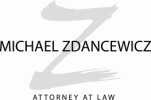 Filing a proof of claim is done under penalty of perjury and subjects the signor to monetary fines if it is established the proof of claim is false or misleading. Filing a proof of claim is serious business. A proof of claim is prima facie evidence of the amount of the creditor’s claim, unless there is an objection to the claim.
Filing a proof of claim is done under penalty of perjury and subjects the signor to monetary fines if it is established the proof of claim is false or misleading. Filing a proof of claim is serious business. A proof of claim is prima facie evidence of the amount of the creditor’s claim, unless there is an objection to the claim.
Objections may come from the debtor, trustee, or other interested party.
Some objections include:
▪ amount is incorrect
▪ claim includes improper interest or penalty charges
▪ claim indicates it is a priority or secured claim when it is not
▪ creditor filed the claim to harass the debtor
▪ creditor did not attach supporting documentation
▪ the claim is late
Generally, in a Chapter 7 bankruptcy case, only the Bankruptcy Trustee may object. Chapter 7 debtors generally will not qualify as a “party in interest” –a person or entity with a financial stake in the outcome of the claim at issue–for the purpose of objecting to a claim.
The objecting party must present sufficient evidence that the creditor’s claim should not be allowed. If the objecting party produces such evidence, the burden of proof shifts back to the creditor to prove their claim.
Chapter 13 cases are different in that any party in interest, including the debtor, may object to a claim.
To learn more about bankruptcy proof of claim, or need assistance from an attorney, contact Windtberg & Zdancewicz to schedule an initial consultation.
The attorneys at Windtberg & Zdancewicz, PLC, provide Arizona residents and businesses with experienced legal representation in all collection matters. We are experienced in creditor’s rights including garnishments, charging orders, attachment, property execution, trustee’s sales, foreclosures, judgments, judgment collection, domestication of foreign judgments, and creditor’s issues in bankruptcy cases. If you need assistance with your collection matters, please contact us at (480) 584-5660.
